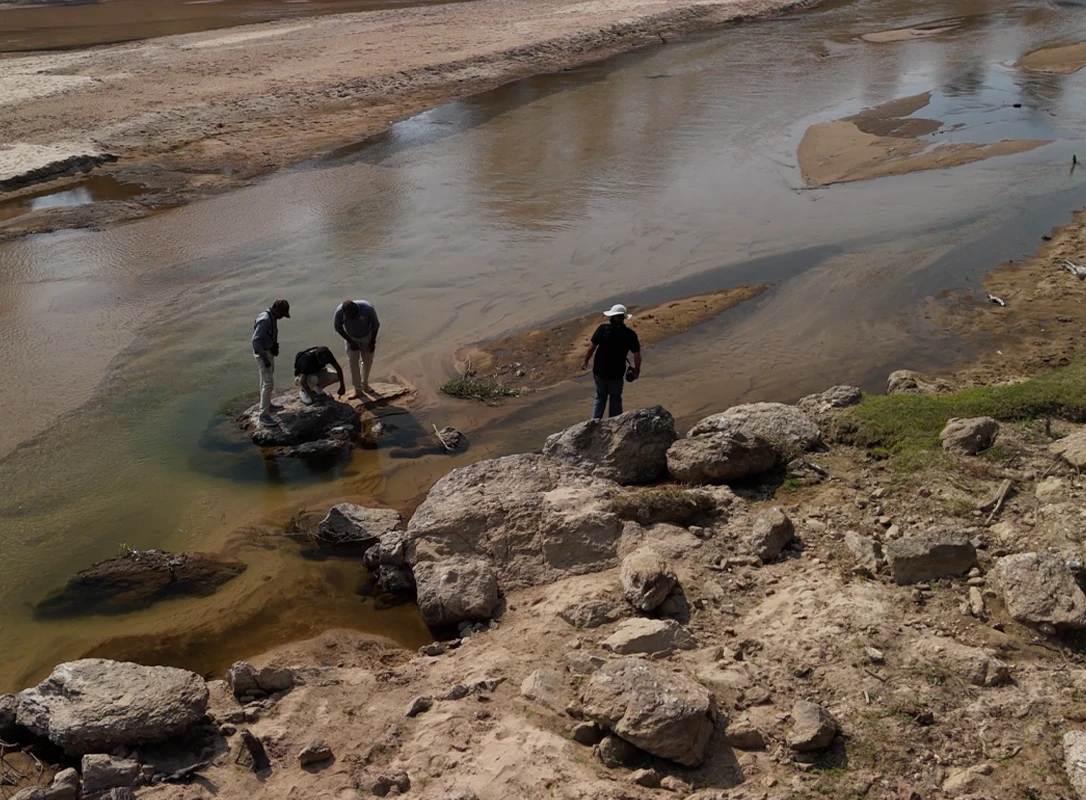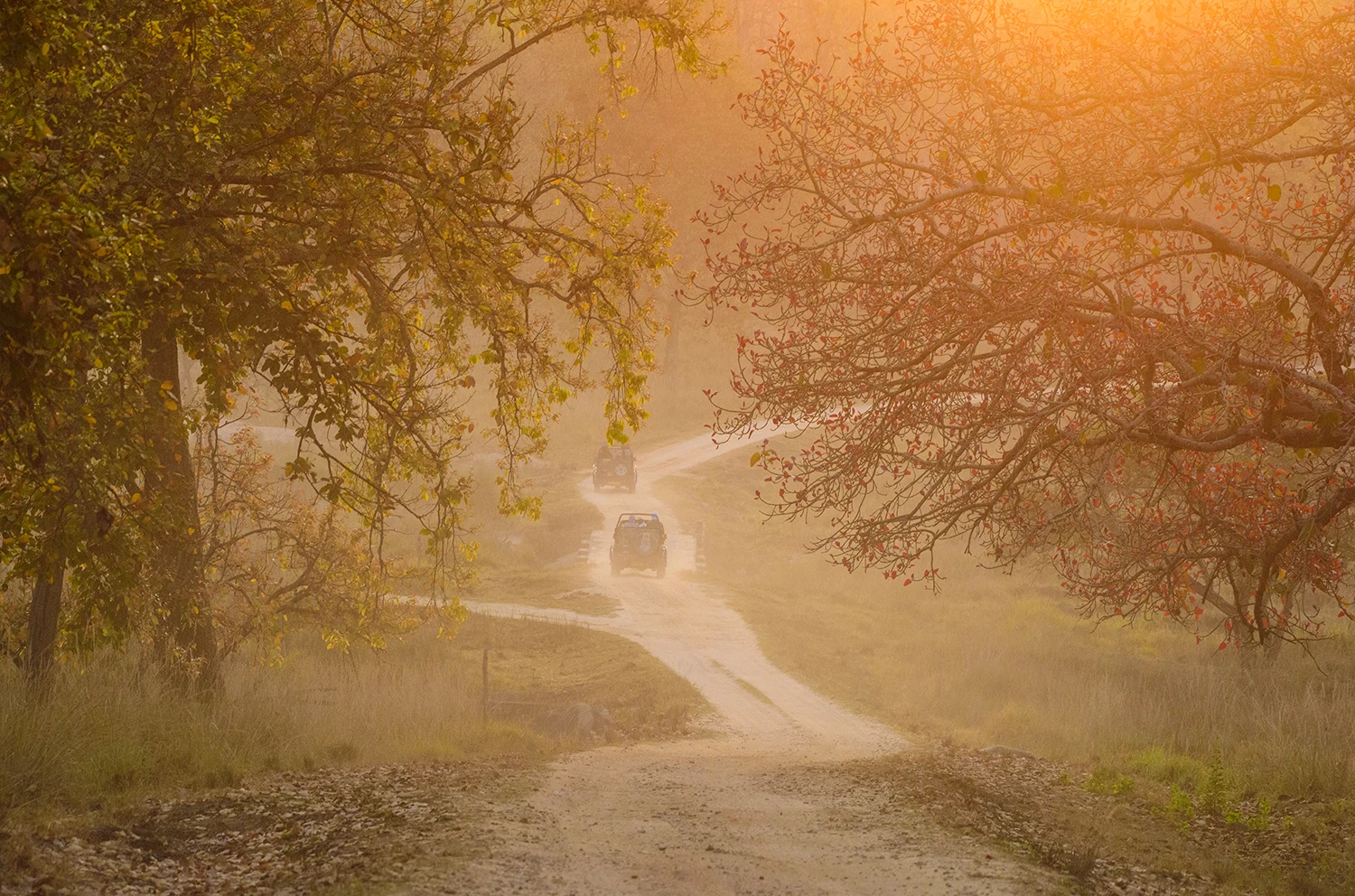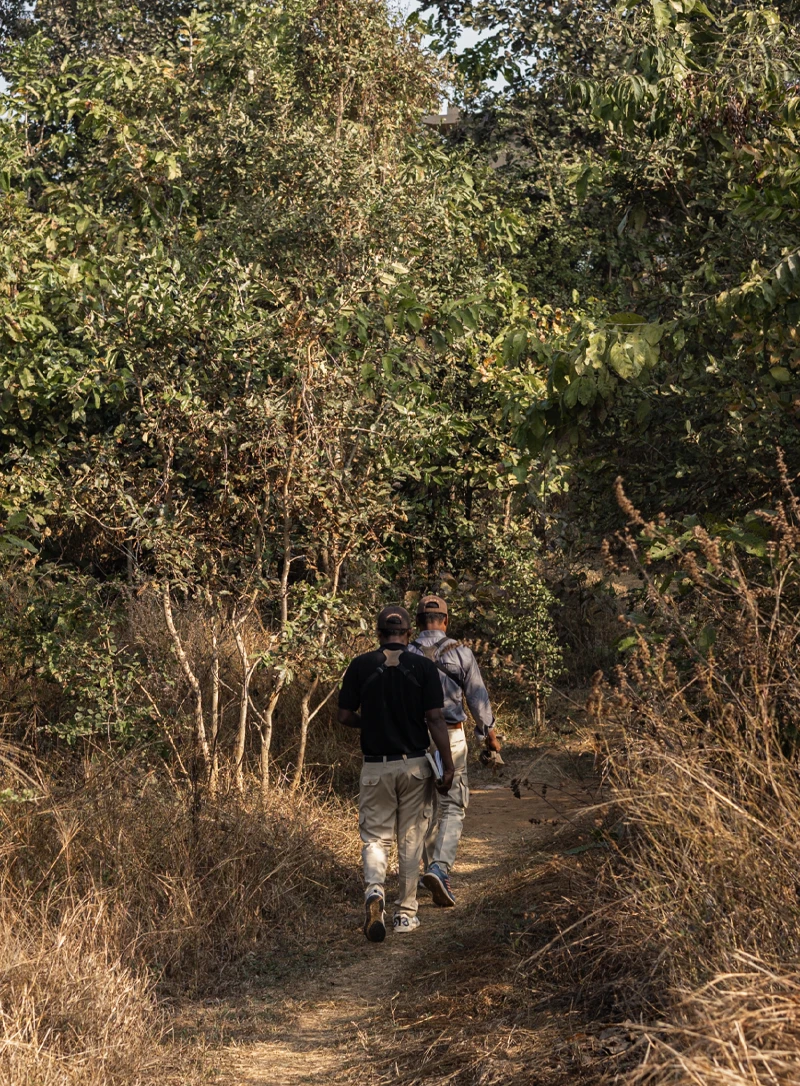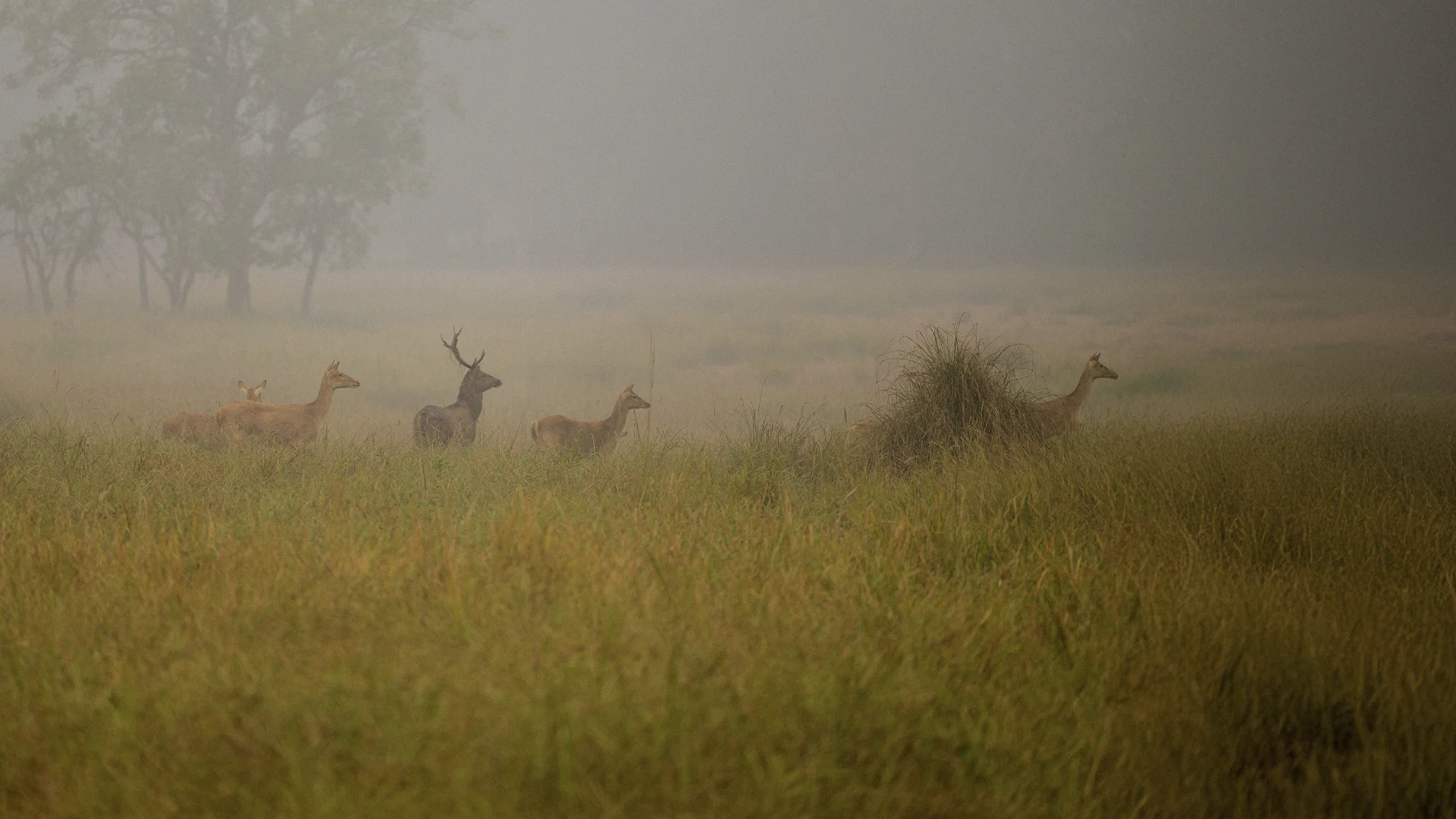
A Day in the Life of a Naturalist at Outpost 12
The Interpreters of Silence
At Outpost 12, the day begins long before the first rays of the sun. While the guests are tucked under duvets, the naturalist team is already awake. Their job is often romanticised as simply "driving through the jungle", but the reality is a grueling, exhilarating 18-hour cycle of tracking, analysing and interpreting the complex language of the wild.
Here is what it takes to be the bridge between the human world and the secrets of Kanha.
The Pre-Dawn Patrol
The alarm rings in the pitch black. In the winter months, the air in Kanha is biting, a sharp reminder of the wilderness outside. The first hour is a ritual of preparation. Fuel levels are checked, safety gear is inspected and the jeep is loaded with the morning's essentials: packed breakfast and woollen blankets.
By the time the naturalist meets the guests for a quick coffee, their senses are already tuned to the frequency of the forest. The drive to the park gate isn’t a commute; it is a "mini-safari." The headlights cut through the mist, revealing the glowing eyes of the night shift; jackals ending their patrol, jungle cats slipping into the undergrowth and spotted owlets holding court on roadside branches.

The Morning Pulse
As the park gates swing open, the core mission begins. The naturalist drives with one eye on the road and one on the dirt track, scanning for "tracks"; fresh paw prints that tell the story of the night’s movements.
This is the search for the tiger, but it is rarely a visual chase. It is auditory. The naturalist shuts off the engine and listens. They are waiting for the "jungle telegraph" - the sharp, frantic alarm calls of the Langur monkey, the Sambar or the Barasingha. These are the forest’s early warning systems, pinpointing exactly where a predator is moving.
The wild dictates even breakfast. The jeep stops at a scenic point for a meal only when the wildlife permits. If the trail is hot, the coffee waits.
Apart from chasing the stripes, interpreting mammal behaviours, identifying trees, spotting birds, appreciating the landscape and looking for wildlife is also done during this. Every track, call and glimpse becomes a moment of shared wonder.

The Invisible Work
When the core zones of Kanha close for the afternoon, the guests retreat to the lodge to rest. The naturalist, however, shifts gears from guide to guardian.
This is the time for "ground intelligence". They patrol the lodge’s perimeter and the banks of the Banjar River, checking camera traps. Retrieving these memory cards is like opening a daily newspaper of the woods, revealing who walked by while the world slept; from wild boars to the elusive Sloth Bear.
They analyse fresh scat, scratch marks on trees and tracks along the riverbank. This isn't just data collection; it is protection. By understanding the movement of animals around Outpost 12, they ensure the lodge remains a passive observer, never an intruder.

The Golden Hour & The Night Watch
The afternoon safari targets a different rhythm. The heat has dissipated, and the focus shifts to the open meadows where the Hard-ground Barasingha - the jewel of Kanha - grazes in the golden light. Looking out for big cats in these hours can also be exciting. So checking the water holes becomes a must. Park drives in the afternoon end by sunset.
But the day doesn’t end when the sun goes down. As darkness reclaims the forest, the naturalist transitions into a guide of the unseen. They lead quiet night walks around the property, turning flashlights away from the trees and onto the ground to reveal the small wonders: the architectural genius of insect life, the silent flight of nightjars and the complex micro-ecosystems often ignored in the quest for big cats.
The Final Story
The day concludes at the dinner table. This is perhaps the most important hour. The naturalist isn't just a host; they are a storyteller. They weave the day's sightings—the tiger's pugmark, the bear on the camera trap, the alarm call of the deer; into a narrative. With clear and dark night skies in Outpost 12, the telescope is set to peer into the cosmic wonders. They spot and guide guests to look at the rings of Saturn or observe the deep craters of the moon. The faint glow of the Milky Way is also traced across the night sky.
They spend their days anticipating the needs of the animals and their evenings translating the silent language of the forest for the guests. At Outpost 12, the naturalist is the heartbeat of the experience, ensuring that when you look at the jungle, you don't just see trees; you see a living, breathing world. These aren't rehearsed stories; they're lived moments. Each tale deepens the bond between humans and the wild.
When you stay at Outpost 12, you don’t just go on a safari, you learn to see the forest differently. The way the dust glows in sunset light, the way a deer freezes before a call; these details turn a trip into transformation.
Follow Aabhas - @aabhaschawrekar, Anand - @the_roadlessexplored, Dharmu - @dharmu_tekam, Durgesh - @dkinwild, Ibrahim - @sheikh__ibrahim99, Ravi - TheBirdPerson, Sujith - @viajero_de_barba

